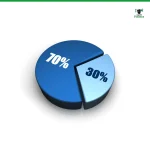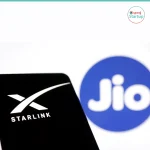What is FMCG?
Fast moving consumer goods (FMCG) are products that are sold quickly and at a relatively low price.They are also known as consumer packaged goods (CPG). Low cost and high usability toothpaste, soaps, cookies, notepads, chocolates etc come under this category.
Different types of FMCG
FMCG products are divided into several types depending on the sector.
Food and drinks Food and beverages generally fall under the FMCG category due to their short shelf life and high turnover rate. Foods such as pasta, bread, potato chips, drinks such as soda cans, coffee cups, and bottled water all fall into this category.
Personal care Shampoos and toothpastes are among the most frequently used personal care products.
Health care products Some health care products that are in high demand fall under the FMG category. These include syringes, bandages, plasters, etc.
Home care products This category includes frequently used and low-cost toilet paper, bleach, cleaning supplies, and kitchen towels.
The FMCG Industry in India The fast moving consumer goods sector is a very important sector in the Indian economy. The home personal care segment accounts for almost half of the market share of the FMCG sector. India is the fourth largest economy in the world.
The growth in income, lifestyle changes and availability are all reasons for the growth of this sector. While most of the growth has been in the urban area, semi-urban and rural areas have also seen significant growth in the last ten years.
The growth of e-commerce
The growth of e-commerce The growth of technology has brought changes in every sector of India. With the e-commerce sector reaching every nook and corner of the country, there has been a perceptible shift in the demand for FMCG products, be it in rural or urban areas. This provides greater customer convenience as customers can easily select and purchase products of their choice using apps and websites. Moreover, the home delivery option will deliver the goods to their homes.
Value addition The increase in consumption of FMCG products in rural areas has also led to the growth of the FMCG market.
The growth of technology Technology is helping in finding new opportunities in the FMCG sector and solving complex supply chain issues. This will lead to the development of the region.
The growth in the FMCG industry is heavily dependent on market research. Enterprises can improve the performance of their sales operations using business intelligence, the cloud, and state-of-the-art field service management software.
Expanding further India's rural market is expected to grow by USD 220 billion in the next few years. This is because rural consumption in India has increased. The increasing proportion of youth in India's population is a major factor driving the demand for FMCG products.
The Future of the FMCG Sector In the last 20 years, the FMCG industry in India has undergone a remarkable transformation. By 2025, the FMCG market is expected to reach around $220 billion with a growth of 14.7 per cent.
Here are some of the factors that are crucial for the expansion of the FMCG sector -
Technology Great strides are being made in the e-commerce sector. People have adapted to technology very quickly and started giving more importance to online purchases. People in rural areas will benefit more from the increase in smartphone and internet usage as it will make it easier to access various e-commerce websites for online shopping.
The Growth of Brands Those who know the acceptance in this sector are coming up with new business models and finding more industry in the FMCG sector.
Adoption of the D2C model Most of the brands have started bringing their products to the doorstep of the customers to take advantage of the trend of the online market. As a result, the demand for customer sales has increased by 88% annually.
The door to investment The potential for investment is also high in the FMCG sector as it is a high selling sector. Government incentives and FDI funds have strengthened the FMCG sector.






